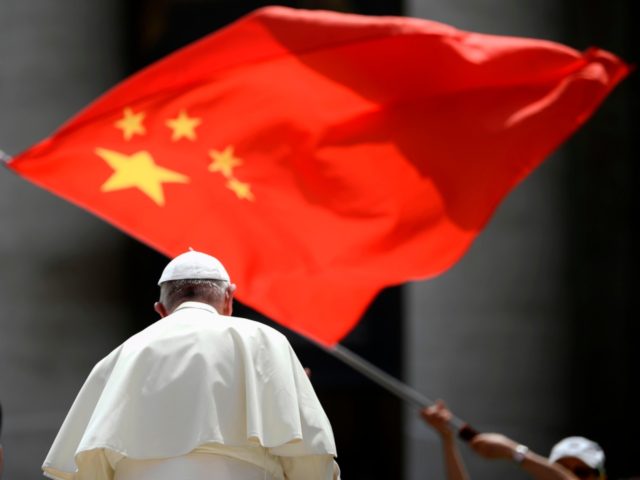China’s systematic crackdown on religion under President Xi Jinping is the worst in 40 years, according to a report published Thursday.
In its nationwide move to rein in religious practice, China has persecuted its Uighur Muslim population in Xinjiang, but is also “targeting Tibetan Buddhists, Christians, Jews and those who follow China’s folk religions with greater government scrutiny now than it has in several decades,” writes Beijing-based Ben Halder for the international media company Ozy.
Officially atheist since the Communists took power in 1949, China is now “taking harsher measures against religion than at any time since the end of the 1970s Cultural Revolution — when books associated with religion and spiritualism including Confucian thought, were burnt in public,” Halder writes.
As the U.S. Commission on International Religious Freedom (USCIRF) noted in its annual report for 2018, China’s new Regulations on Religious Affairs, which came into effect in February last year, “introduced a virtual ban on unauthorized religious teachings and requires religious organizations to report any online activity to authorities,” Halder says.
This crackdown has taken many forms. Last April, Beijing ordered the removal of bibles and other Christian books from online bookstores and e-commerce platforms across China, presumably to introduce a new, state-approved translation of the sacred Christian text that will conform to Chinese socialist ideology.
At the time, China announced that one of its major tasks in the coming years is to enhance “Chinese-style Christianity” by reinterpreting and retranslating the Bible.
According to Halder, for a while, especially in the 1990s and 2000s, “China tried to portray itself as less repressive against religion at a time it was seeking to integrate itself in global governance bodies such as the World Trade Organization.”
Under President Xi Jinping, however, the Communist Party has targeted all organized opposition — including student unions and young communist groups critical of the party, and religion is at the forefront of this battle.
“Religious groups, especially if they’re growing, represent a challenge to that hegemony,” Halder notes.
The new Regulations on Religious Affairs has paved the way for China to “Sinicize” religious thought in “a campaign that attempts not only to diminish and erase the independent practice of religion, but also the cultural and linguistic heritage of religious and ethnic communities,” USCIRF said in its report.
At the Chinese Communist Party (CPC) Congress held in October, 2017, the head of the umbrella agency that oversees religion insisted that “socialist core values” must be at the core of any religious faith active in China.
Zhang Yijiong, the leader of the United Front Work Department (UFWD), said that the Communist Party had a long way to go to “Sinicize” religion, which means preventing anyone from “taking advantage of religion to harm national security” and “endangering national unity.”
Rather than outlaw it outright, therefore, China has sought to domesticate Christianity so that it serves to support rather than oppose the values and structures of Chinese communism.
A prime example of this is the Chinese Catholic Patriotic Association (CCPA), China’s state-run Catholic institution and the official alternative to the illegal underground Catholic Church faithful to Rome.
In its seemingly desperate attempt to restore open diplomatic relations with Beijing, the Vatican under Pope Francis has distanced itself from the underground Church and ceded some authority in the naming of bishops to the communist party.
Chinese President Xi Jinping harbors a “particular animosity” toward Christians and sees underground churches as a “severe national security threat,” according to the founder of China Aid, a U.S.-based watchdog group.
China Aid founder and president Bob Fu told a conference on religious persecution in April that the number of persecuted Christians has “dramatically increased” under the reign of President Xi Jinping who has “animosity against Christianity in particular.”
“The number of people we documented who are persecuted among just Christians alone last year reached 223,000 compared to these 48,000 in 2016,” Mr. Fu said.
Whereas underground churches that operate outside state control are seen as a particular threat, growing attendance even at official churches has provoked hostility from the Xi government, and the state has forced churches to install facial recognition systems to identify those attending services.
Every church building was “forced to put a sign banning children, students, civil servants, military personnel, and communist party members from entering,” Mr. Fu said.

COMMENTS
Please let us know if you're having issues with commenting.